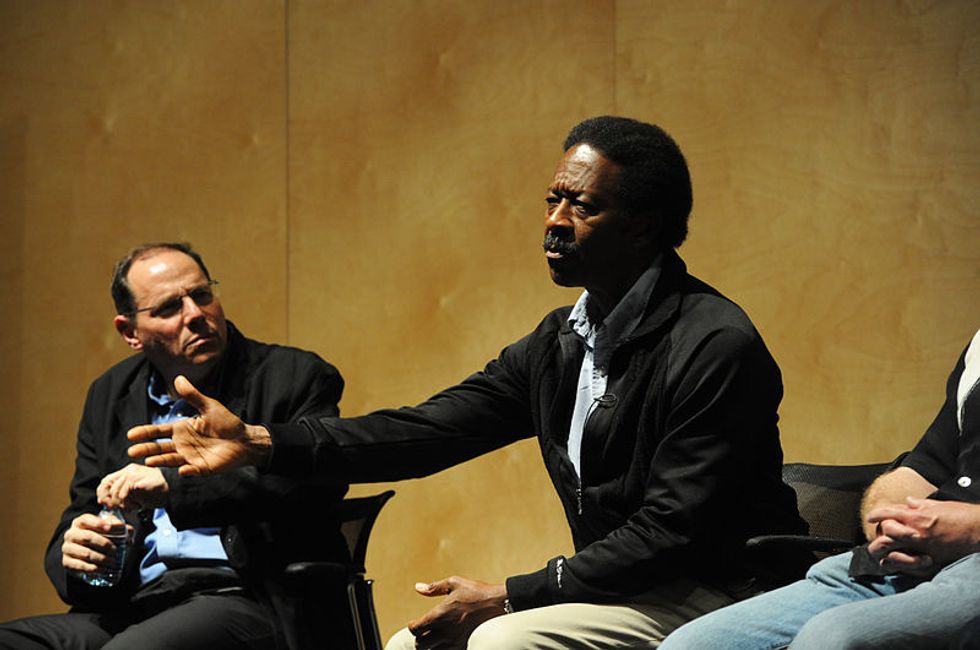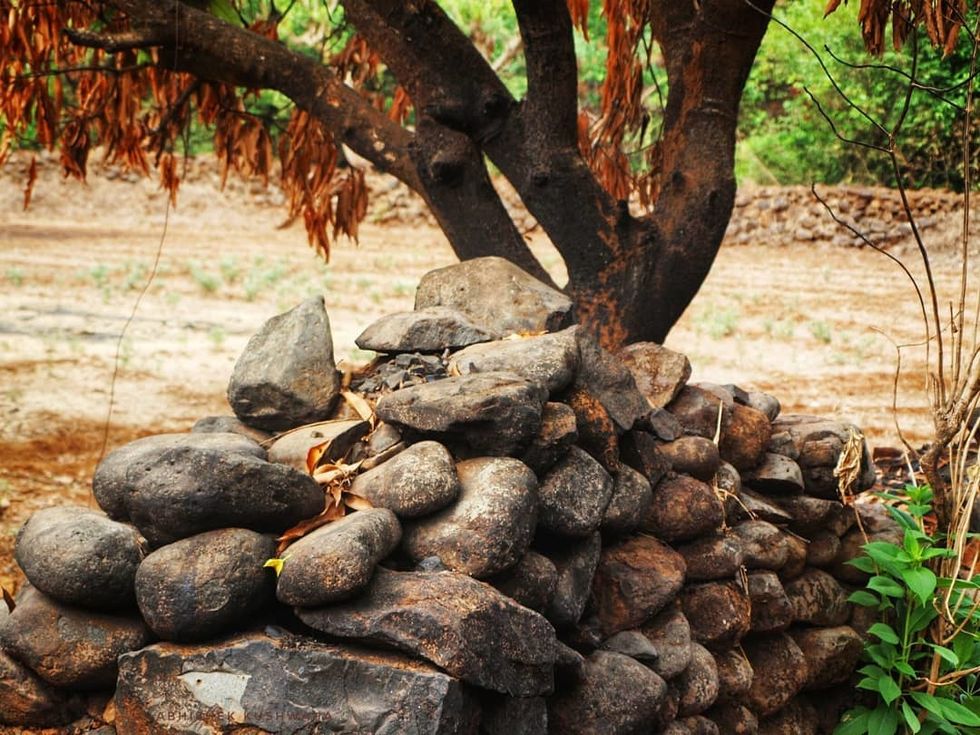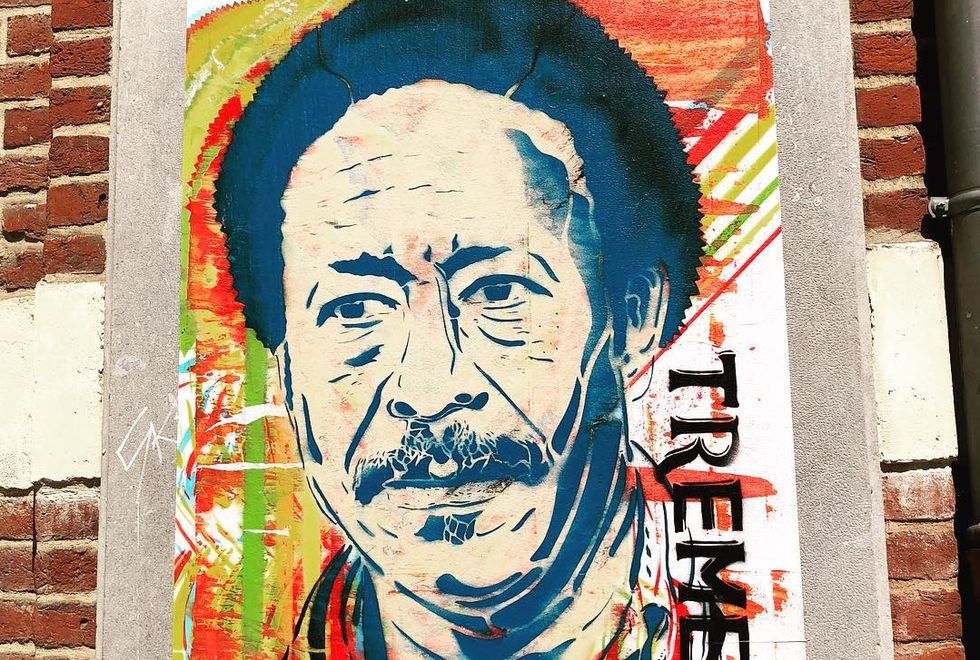'Treme': Defying Hurricane Katrina's Disaster Narrative
As an outsider to New Orleans, it was a privilege to step into the world of these New Orleans residents after Katrina
"Ten years after Hurricane Katrina, outsiders will have two versions of the Katrina experience. One version will be the images they recall from news coverage of the aftermath. The other will be the intimate portrayal of the determination of New Orleans residents to rebuild and recover their lives." - the blurb of "HBO's Treme and Post-Katrina Catharsis: The Mediated Rebirth of New Orleans"
I remember late in 2005, turning the channel to CNN and seeing image after image of Hurricane Katrina's devastation on New Orleans. I remember seeing the levees break, the houses flood, the crowding of the Superdome, and I remember the first thing 8-year-old me thought at the time was "thank God I'm not there. Thank God it's not me." All I knew was the disaster and the devastation, and when news channels like CNN stopped covering New Orleans after the storm, that's all I knew
"The Wire," "Treme's" predecessor, was the best show of all time because it taught me empathy and compassion. "Treme" is a great show, too, because it defied that disaster narrative and showed me the grit of some New Orleans residents. "Treme" is still the slowest show I have ever watched. To stick with it through the end could sometimes feel like watching a Ken Burns history documentary, but that is the nature of the show: it required a whole lot of patience.
Newsday's Verne Gay's review of the show titled it "'Treme' final season premiere review: Still good, still not for everyone," and that headline rings true as an umbrella for the show. No one I have talked to has heard of the show, not one person has referenced it in conversation - in fact, I only started watching it because David Simon, the creator of "The Wire," was its writer.
Nevertheless, I finished "Treme" with mixed feelings. I think I will need to watch it again, when I'm older and more fully able to appreciate the show, and maybe after I actually visit New Orleans. According to Akiva Gottlieb of The Nation, "David Simon [in "The Wire"]...has unforgettably cataloged all the reasons to quit; now he wants to know why the struggle could be worthwhile." While it is a great review that is worth reading, to keep "Treme" in the shadow of its predecessor to stop from reducing the show. It's difficult when the likes of Wendell Pierce and Clarke Peters, prominent main characters in "The Wire," were also main characters in "Treme," but for its own sake, "Treme" should be interpreted as its own show with its own unique structure.
One thing that struck out to me about "Treme," that will most likely always strike out to me, is the resilience of its characters. We follow the same group of people throughout four seasons, people from all walks of life in New Orleans after Hurricane Katrina. Initially, I thought Simon was going to depict LaDonna Williams, the owner of a local bar, or Antoine Batiste, a local trombonist, as victims of the disaster, and use the show as a just that: a disaster narrative, with an indictment on the institutions that failed the victims of Katrina (much like "The Wire").
But it wasn't. These characters had a tremendous amount of grit, will, and a refusal to give up despite the circumstances of Katrina's aftermath. Look no further than Albert Lambreaux, leader of a Mardi Gras Indian tribe named Guardians of the Flame, whose motto, "won't bow, don't know how," defines his character throughout the series. In one instance, "Big Chief" Lambreaux flat out denies chemotherapy for lymphoma to suit up for the next Mardi Gras. The types of people on the show range from DJs, developers, civil rights attorneys, police lieutenants, and violinists, but all of the mare united by this grit. Above all, all of them are united by their loyalty to New Orleans, not despite its dysfunction after Katrina, but perhaps because of it. Their names are Davis McAlary, Nelson Hidalgo, Toni Bernette, Terry Colson, and Annie Talarico, respectively.
Near the end of the series, Terry, the police lieutenant is visiting his estranged ex-wife and sons, and has a conversation at the dinner table where he asks why do people have to be defined by their profession. He isn't Terry the cop: he is just a guy named Terry. And each character is not defined by their profession or their circumstances after the storm. They are defined by their names, personas, and how they reacted in the face of adversity, and each character had unique ways of doing that.
In fact, one character even resembles perceptions of David Simon himself: Davis McAlary. Pardon the language, but McAlary, for a good portion of the series, is an annoying piece of shit: a rich, privileged white man who attempts to publicize and use New Orleans's suffering to promote his own career as a musician and DJ. But despite his vanity, McAlary is redeeming in the way he treats the people around him and the people he works with respect - and he is no longer DJ Davis, but instead just Davis, a person I feel is a friend.
And what struck out to me was how much I liked not only Davis, LaDonna, and Terry by the end, but how much I liked every character and how they carried on. For me, it was a privilege to share the journeys of Antoine and Sonny as they changed their lives over the course of several years. It was a privilege to step into Janette's various kitchens and see the life of a woman striving to build her own restaurant. It was a privilege to step into Toni's attempt to bring justice to the NOPD. It was a privilege to step into the world of Delmond as he tried to balance the terminal cancer of his father and his career as a prominent trumpeter.
As an outsider to New Orleans, it was a privilege to step into the world of these New Orleans residents after Katrina, and experience this first hand:
"Treme offers outsiders an inside look into why New Orleanians refused to abandon a place that many questioned should not be rebuilt after the levees failed."
























